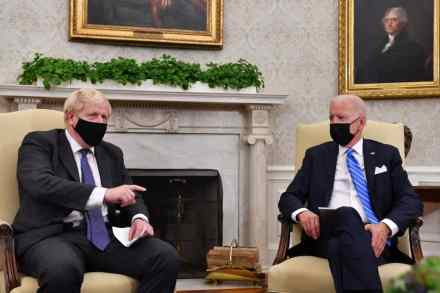No, Biden didn’t just snub Brexit Britain
For European Union enthusiasts, the ‘trade deal with America’ has joined ‘£350 million pledge on a bus’ as one of the great Brexit lies. A certain amount of gloating has therefore greeted the news that Joe Biden last night ‘downplayed’ the possibility of a US-U.K. Free Trade Agreement. It’s a ‘snub’, Brexiteer hopes are dashed, and so on. But did Biden actually ‘downplay’ anything? Not really, since nobody has been seriously playing up the possibility of late. Many journalists are today talking as if the Prime Minister had been hoping to announce with Biden the trade deal Donald Trump promised Britain in 2017. But Boris has been the one minimising




















